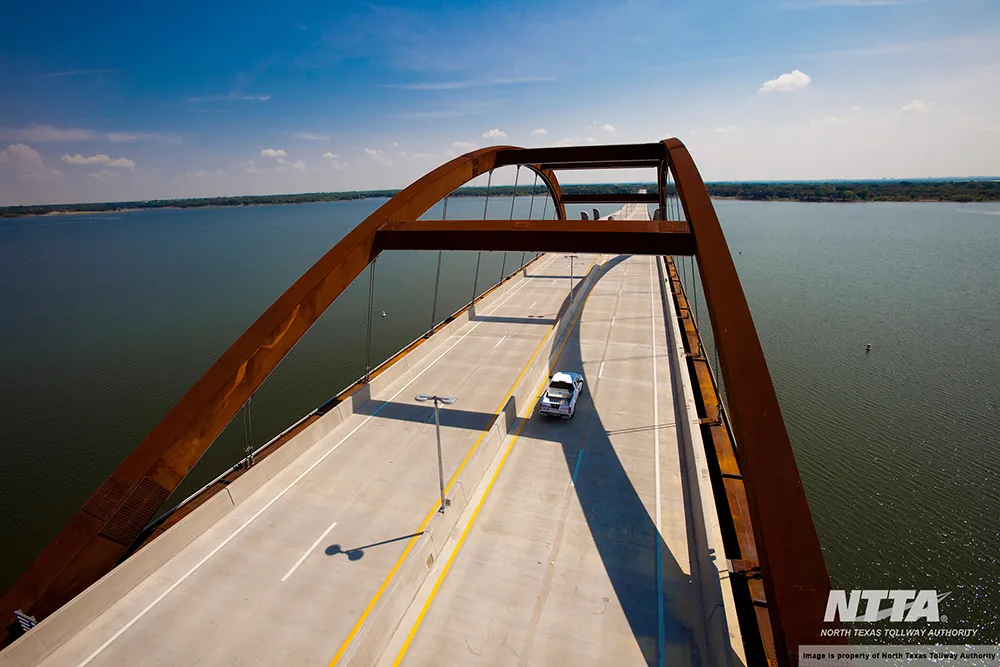The city of Cape Town and South Africa’s roads agency Sanral are again in dispute over the proposed US$936 million N1 and N2 tolling project, with the city saying Sanral is attempting to keep the public in the dark about the costs of tolling.
The Western Cape High Court last year put a temporary stop to the project until the finalisation of the city’s review application in which it is asking the court to set aside the decision to declare the N1 and N2 toll roads.
Sanral initially withheld what it cons
June 10, 2014
Read time: 2 mins
The city of Cape Town and South Africa’s roads agency 2161 SANRAL are again in dispute over the proposed US$936 million N1 and N2 tolling project, with the city saying SANRAL is attempting to keep the public in the dark about the costs of tolling.
The Western Cape High Court last year put a temporary stop to the project until the finalisation of the city’s review application in which it is asking the court to set aside the decision to declare the N1 and N2 toll roads.
SANRAL initially withheld what it considered to be confidential documents on the costs of tolling; these were released to the city earlier this year. Mayoral committee member for Transport Brett Herron said the city’s supplementary court papers showed how much it would cost to convert the N1 and N2 into toll roads, how proposed toll fees would compare to those paid by motorists in Gauteng, the toll revenue expected from the N1 and N2 toll project and how much of the toll fees would be spent on the project infrastructure and operations.
“SANRAL wants to keep the cost to the taxpayer a secret by preventing the city from disclosing this information. SANRAL is using the excuse of ‘commercial confidentiality’ to prevent the public disclosure of information contained in the bids submitted by the companies that wish to toll the N1 and N2,” Herron said.
The city believes no part of the city’s court papers should be kept from the public. Herron said: “SANRAL is a public agency of the national Department of Transport and they should be transparent.”
The court has stipulated that SANRAL and the Protea Parkways Consortium, which made the initial unsolicited proposal that initiated the Winelands toll Project and has been selected by SANRAL as the preferred bidder, must make an application to court by 17 June explaining why the city should not be allowed to file its supplementary papers openly.
Further court proceeding are expected before the dispute is finally resolved.
The Western Cape High Court last year put a temporary stop to the project until the finalisation of the city’s review application in which it is asking the court to set aside the decision to declare the N1 and N2 toll roads.
SANRAL initially withheld what it considered to be confidential documents on the costs of tolling; these were released to the city earlier this year. Mayoral committee member for Transport Brett Herron said the city’s supplementary court papers showed how much it would cost to convert the N1 and N2 into toll roads, how proposed toll fees would compare to those paid by motorists in Gauteng, the toll revenue expected from the N1 and N2 toll project and how much of the toll fees would be spent on the project infrastructure and operations.
“SANRAL wants to keep the cost to the taxpayer a secret by preventing the city from disclosing this information. SANRAL is using the excuse of ‘commercial confidentiality’ to prevent the public disclosure of information contained in the bids submitted by the companies that wish to toll the N1 and N2,” Herron said.
The city believes no part of the city’s court papers should be kept from the public. Herron said: “SANRAL is a public agency of the national Department of Transport and they should be transparent.”
The court has stipulated that SANRAL and the Protea Parkways Consortium, which made the initial unsolicited proposal that initiated the Winelands toll Project and has been selected by SANRAL as the preferred bidder, must make an application to court by 17 June explaining why the city should not be allowed to file its supplementary papers openly.
Further court proceeding are expected before the dispute is finally resolved.









